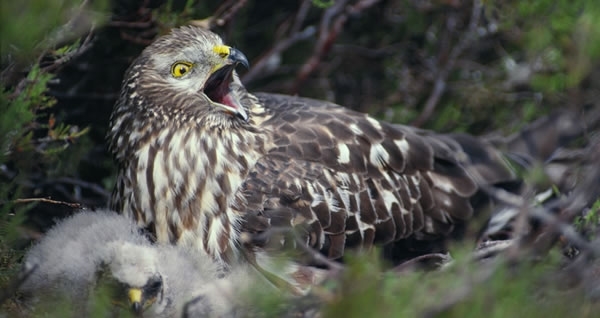
By Andrew Gilruth, GWCT Communications Director
The GWCT suggested that a technique like this might unlock the conflict between hen harriers and driven grouse shooting nearly 20 years ago – we still believe it could. On the other hand, the RSPB feels it is ‘ridiculous’ – but the government has rejected this view and they are going to test it here. It is easy to see why:
- As Professor Ian Newton, former RSPB chairman, has pointed out, collecting raptor eggs, hatching them out and returning the fledged chicks to the wild has been used around the world, for five decades - to successfully increase populations. More here.
- The RSPB has successfully used brood management to help species like the spoon-billed sandpiper - where the main threat was illegal trapping. More here.
- French conservationists have been successfully using it to unlock the conflict between Montagu’s harriers and arable farmers for 20 years. The science behind how it worked is here.
- In the UK there is a proven conflict between hen harriers and economic grouse moors. In the words of the RSPB’s former conservation director, Mark Avery, it was “the Joint Raptor Study that showed how wrong we [RSPB] were” to think there was no impact. More here.
- A leading raptor scientist, Arjun Amar (formerly RSPB), has said that hen harrier brood management “could well work to provide a conservation success (i.e. more harriers).” More here.
- The International Centre for Birds of Prey and the Hawk & Owl Trust are helping with the trial because they feel it might work. More here.
- Three years ago, Mike Clarke, RSPB chief executive, said “we’ve not said never to brood management.” The next year Martin Harper, RSPB conservation director, again said “we’ve not said never to brood management.”
The government might be wondering if those opposed to trialling brood management are simply afraid it might work?